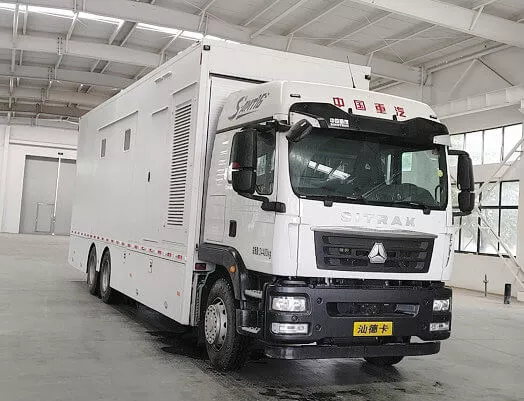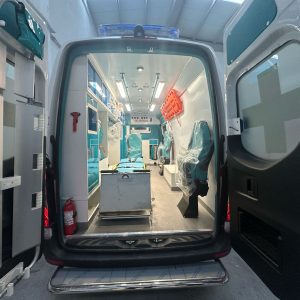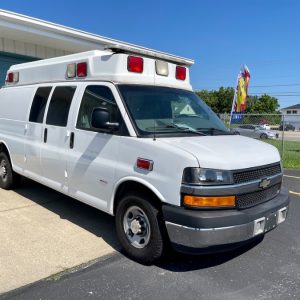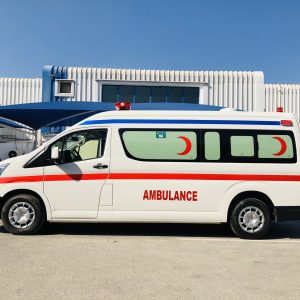Mobile Surgery Unit; In emergencies, time and accessibility can mean the difference between life and death. Natural disasters, armed conflicts, remote communities, and humanitarian crises all present one major challenge: limited access to surgical care. That’s where Mobile Surgery Units (MSUs) step in as vital, self-contained solutions—bringing sterile, fully-equipped operating rooms on wheels directly to the people who need them most.
This article will guide you through the concept, structure, applications, and benefits of mobile surgical units, while highlighting what to look for in a field surgery vehicle manufacturer.
What is a Mobile Surgery Unit?
A Mobile Surgery Unit (MSU) is a specialized medical vehicle designed to perform a wide range of surgical procedures in the field. These units are fully functional, sterile environments equipped with everything necessary for minor to moderate surgeries, including:
- Surgical table
- Anesthesia equipment
- Lighting and air sterilization
- Medical gas systems
- Surgical instrument storage
- Recovery and pre-op areas
Built into a van, truck, trailer, or container, MSUs are designed to comply with international health and safety standards and are used by military medical services, emergency response teams, NGOs, and national health ministries.
Why Mobile Surgical Units Are Essential
Healthcare infrastructure in rural or crisis-stricken areas is often inadequate or completely absent. In such cases, transporting patients to a hospital can be impossible or too late. Mobile operating theaters solve this problem by going directly to the location and offering:
- Life-saving emergency surgeries (trauma, C-sections, appendectomies)
- Scheduled procedures in remote regions
- Support for hospitals during overload or renovation
- Medical response during war, pandemics, or natural disasters
Who Uses Mobile Surgical Vehicles?
Mobile surgical units are used globally by a variety of sectors:
1. Military and Defense Forces
For battlefield medical response and surgeries close to the front lines.
2. Humanitarian Organizations
UN agencies, WHO, Red Cross, and MSF deploy MSUs in disaster zones and refugee camps.
3. Government Health Ministries
For rural outreach programs, mobile hospital campaigns, and remote area medical interventions.
4. Private Healthcare NGOs and Charities
To serve underdeveloped areas where hospitals are too far or too crowded.
Applications of Mobile Surgery Units
The flexibility of MSUs allows them to be adapted for different surgical specialties and environments, including:
- General surgery (appendectomy, hernia repair)
- Obstetrics and gynecology (emergency C-sections, D&C procedures)
- Ophthalmology (cataract surgeries)
- Orthopedic procedures (fracture stabilization)
- Plastic and reconstructive surgery (burn victims, trauma repair)
In disaster zones, these vehicles can be quickly deployed to offer urgent care within the Golden Hour, where intervention is most effective.
What Does a Mobile Operating Room Contain?
A modern mobile surgical unit is not just a converted van—it is a modular, climate-controlled, sterile environment designed for serious medical procedures. Typical features include:
1. Sterile Operating Room
- Stainless steel surfaces
- Surgical-grade lighting
- Antibacterial flooring
- Positive air pressure and HEPA filters
2. Medical Equipment
- Operating table (hydraulic or electric)
- Surgical light with backup battery
- Anesthesia machine and ventilator
- Suction devices
- Electrocautery unit
- Oxygen and medical gas supply
3. Support Areas
- Pre-op and post-op beds
- Scrub sinks and sterile storage
- Clean water supply and wastewater tank
- Generator or solar power backup
Key Features of a Mobile Surgery Unit
When selecting or manufacturing a mobile surgical unit, several core features should be prioritized:
1. Vehicle Configuration
Choose based on terrain and operational scope:
- Van or truck-based units for quick deployment in cities or camps
- Trailer-based or expandable container units for long-term missions with higher patient volume
- 4×4 off-road units for remote or rugged locations
2. Autonomy and Power
- Generator with UPS backup
- Solar panel options for extended field use
- Built-in HVAC and sterilization systems
3. Mobility and Deployment
- Rapid setup time (under 1 hour)
- Hydraulic expansion modules for more interior space
- Easy to tow, transport, or airlift
4. Hygiene and Sterilization
- Medical-grade clean room technology
- Autoclaves and UV sterilizers
- Wash stations and negative/positive air pressure zones
Benefits of Mobile Surgical Solutions
Mobile surgical vehicles deliver substantial benefits to healthcare systems, emergency teams, and patients alike:
1. Rapid Response
Be ready to treat trauma and surgical cases directly in the field, without the delays of evacuation or referral.
2. Accessibility
Provide care to remote populations who live hours away from the nearest operating room.
3. Cost-Effective Infrastructure
Avoid the massive expense and time required to build permanent surgical centers in rural or high-risk zones.
4. Scalability
Mobile surgery programs can scale up quickly with multiple units, depending on demand and funding.
5. Adaptability
MSUs can also be adapted into mobile ICUs, post-operative recovery rooms, or training and simulation labs.
Trends in Mobile Surgical Technology
Recent innovations are making mobile surgical units more advanced, efficient, and sustainable:
- Tele-surgery support: Surgeons in remote locations receive real-time assistance via video conferencing
- Smart data integration: Patient records and surgical notes are stored in digital systems for remote access
- Expandable container units: Fold-out walls increase space while keeping the unit compact for transport
- Hybrid power systems: Combining fuel, battery, and solar for longer missions off-grid
Choosing the Right Mobile Surgery Unit Manufacturer
When procuring a field surgical vehicle, quality and compliance matter. Here’s what to look for:
✅ Medical Compliance
- WHO, CE, ISO certifications
- EN 1789 compliance for medical transport
- Sterility and infection control standards
✅ Customization
Each project is unique. Choose a partner who can tailor your unit based on:
- Surgical specialty
- Terrain and climate
- Equipment list and power needs
- Budget and timeline
✅ After-Sales and Training
A quality supplier should provide:
- Full documentation and certification
- Installation and training services
- Maintenance guidance and spare part availability
- Global warranty and technical support
Final Thoughts: Surgery Where It’s Needed Most
A mobile surgery unit is more than a vehicle—it’s a mobile hospital lifeline, delivering surgical care wherever it’s needed most. In warzones, rural communities, or disaster-hit regions, these units can save lives, reduce disability, and support overwhelmed health systems.
Governments, NGOs, and military operations increasingly rely on these mobile operating rooms to bring healthcare to the front lines. With the right design, equipment, and partner, you can deploy world-class surgical capabilities—even in the most challenging environments.













